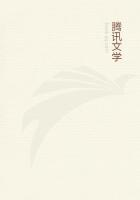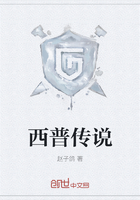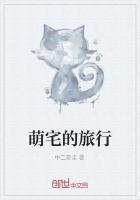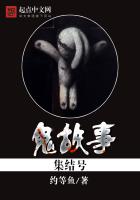'What good work?'asked Claude,somewhat surprised.
'Why,two of my friends wish to purchase some swaddling-clothes for the infant of a poor widow of the Haudriette Convent.'Tis a charity.It will cost three florins,and I would like to add my contribution.'
'Who are your two friends?'
'Pierre l'Assommeur4 and Baptiste Croque-Oison.'5
'Humph!'said the Archdeacon;'these are names that go as fitly with a good work as a bombard upon a high altar.'
It cannot be denied that Jehan had not been happy in the choice of names for his two friends.He felt it when it was too late.
'Besides,'continued the shrewd Claude,'what sort of swaddling-clothes are they which cost three florins—and for the infant of a Haudriette?Since when,pray,do the Haudriette widows have babes in swaddling-clothes?'
Jehan broke the ice definitely.
'Well,then,I want some money to go and see Isabeau la Thierrye this evening at the Val-d'Amour!'
'Vile profligate!'cried the priest.
''Anagneia,'retorted Jehan.
This quotation,selected by the boy no doubt in sheer malice from those on the wall of the cell,produced a singular effect upon the priest.He bit his lip,and his anger was lost in his confusion.
'Get you gone!'said he to Jehan;'I am expecting some one.'
The scholar made one last attempt.
'Brother Claude,give me at least one little parisis to get some food.'
'How far have you advanced in the Decretals of Gratian?'asked Dom Claude.
'I have lost my note-books.'
'Where are you in Latin classics?'
'Somebody stole my copy of Horatius.'
'And where in Aristotle?'
'Faith,brother!what Father of the Church is it who says that the errors of heretics have ever found shelter among the thickets of Aristotle's metaphysics?A straw for Aristotle!I will never mangle my religion on his metaphysics.'
'Young man,'replied the Archdeacon,'at the last entry of the King into Paris,there was a gentleman named Philippe de Comines,who displayed embroidered on his saddle-cloth this motto—which I counsel you to ponder well:'Qui non laborat non manducet.''6
The scholar stood a moment silent,his eyes bent on the ground,his countenance chagrined.Suddenly he turned towards Claude with the quick motion of a wagtail.
'So,good brother,you refuse me even a sou to buy a crust of bread?'
'Qui non laborat non manducet.'
At this inflexible answer Jehan buried his face in his hands,like a woman sobbing,and cried in a voice of despair:
'Otototototoi!'
'What do you mean by this,sir?'demanded Claude,taken aback at this freak.
'Well,what?'said the scholar,raising a pair of impudent eyes into which he had been thrusting his fists to make them appear red with tears;'it's Greek!it is an ana t o chylus admirably expressive of grief.'And he burst into a fit of laughter so infectious and uncontrolled that the Archdeacon could not refrain from smiling.After all,it was Claude's own fault:why had he so spoiled the lad?
'Oh,dear brother Claude,'Jehan went on,emboldened by this smile,'look at my broken shoes.Is there a more tragic buskin in the world than a boot that gapes thus and puts out its tongue?'
The Archdeacon had promptly resumed his former severity.
'I will send you new shoes,but no money.'
'Only one little parisis,brother,'persisted the suppliant Jehan.'I will learn Gratian by heart,I am perfectly ready to believe in God,I will be a very Pythagoras of science and virtue.But one little parisis,for pity's sake!Would you have me devoured by famine,which stands staring me in the face with open maw,blacker,deeper,more noisome than Tartarus or a monk's nose—?'
Dom Claude shook his head—'Qui non laborat—'
Jehan did not let him finish.'Well!'he cried,'to the devil,then!Huzza!I'll live in the taverns,I'll fight,I'll break heads and wine cups,I'll visit the lasses and go to the devil!'
And so saying,he flung his cap against the wall and snapped his fingers like castanets.
The Archdeacon regarded him gravely.'Jehan,'said he,'you have no soul.'
'In that case,according to Epicurus,I lack an unknown something made of another something without a name.'
'Jehan,you must think seriously of amending your ways.'
'A !'cried the scholar,looking from his brother to the alembics on the furnaces,'everything seems awry here—tempers as well as bottles!'
'Jehan,you are on a slippery downward path.Know you whither you are going?'
'To the tavern,'answered Jehan promptly.
'The tavern leads to the pillory.'
''Tis as good a lantern as any other,and one,may-be,with which Diogenes would have found his man.'
'The pillory leads to the gibbet.'
'The gibbet is a balance with a man at one end and the whole world at the other.It is good to be the man.'
'The gibbet leads to hell.'
'That's a good big fire.'
'Jehan,Jehan!all this will have a bad end!'
'It will have had a good beginning.'
At this moment there was a sound of footsteps on the stairs.
'Silence!'said the Archdeacon,his finger on his lips,'here is M re Jacques.Hark you,Jehan,'he added in a low voice,'beware of ever breathing a word of what you have seen or heard here.Hide yourself quickly under this furnace,and do not make a sound.'
The scholar was creeping under the furnace when a happy thought struck him.
'Brother Claude,a florin for keeping still!'
'Silence!I promise it you!'
'No,give it me now.'
'Take it,then!'said the Archdeacon,flinging him his whole pouch angrily.Jehan crept under the furnace,and the door opened.
1 Blow,hope.
2 Whence,whither?—Man is a monster unto men.—The stars,a fortress.—The name,a wonder.—A great book,a great evil.—Dare to be wise.—It bloweth where it listeth.
3 Account the Lord of heaven thy ruler upon earth.
4 The slaughterer.
5 The rook.
6 He who will not work shall not eat.
Chapter 5-The Two Men in Black

